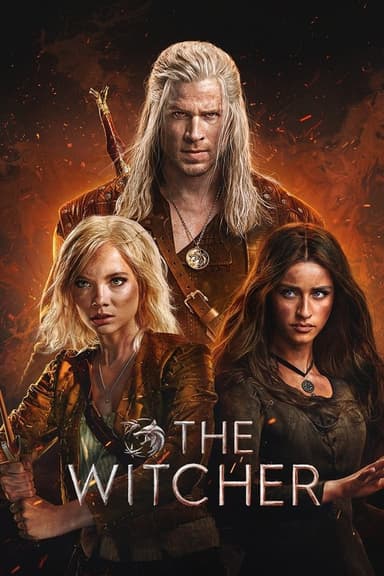
The Witcher: Blood Origin
2022 • Action & Adventure, Drama, Sci-Fi & Fantasy • TV-MA
More than a thousand years before the world of The Witcher, seven outcasts in the elven world unite in a blood quest against an unstoppable power.
Why you should read the novel
The Witcher novels by Andrzej Sapkowski offer a deep, multi-layered world that far exceeds the boundaries of any visual adaptation. In these books, readers immerse themselves in a rich tapestry of legends, political intrigue, and philosophical themes, all woven together by Sapkowski's masterful storytelling and biting wit. Every character, monster, and moral dilemma is explored with nuance, making the reading experience vastly rewarding for anyone seeking depth and complexity.
Sapkowski's prose conjures an atmosphere that is both enchanting and brutal, presenting a unique interpretation of folklore that is almost impossible to fully translate onto screen. The tales are imbued with social commentary, humor, and philosophical musings, drawing readers into the moral grey zones that define the series' universe. This creates a more personal and thought-provoking engagement than what a fast-paced TV show can offer.
Diving into the books also provides a greater historical context behind the events shaping the Continent, revealing hidden connections and histories that adaptations often miss. For those seeking the true essence of The Witcher world—with all its magic, complexity, and raw humanity—the novels are the definitive source.
Adaptation differences
The most significant difference between The Witcher: Blood Origin and the original books is the story itself: Blood Origin invents new lore and characters that are only briefly referenced or completely absent in Sapkowski's works. The series attempts to fill in the gaps surrounding the Conjunction of the Spheres and the creation of the first Witcher—events which, in the novels, are shrouded in mystery and left largely to the imagination. Thus, the show indulges in creative liberties, building entire plot lines and relationships from scratch.
Characters central to the TV mini-series, such as Éile, Fjall, and Scían, do not appear in Sapkowski’s novels, nor does the specific group quest depicted in Blood Origin. Instead, the books focus on Geralt, Ciri, and Yennefer, leaving the ancient history of the Continent as background lore rather than foreground narrative. This leads to a drastically different tone and sense of scope between the adaptation and the novels.
Furthermore, the world-building in the books draws heavily on Slavic and broader European folklore, with nuanced cultural and political complexity that TV adaptations often struggle to capture. Blood Origin favors fast-paced adventure and spectacle, sometimes at the expense of subtler themes and world details that characterize the literary series. As a result, many of the philosophical questions and moral ambiguities that drive Sapkowski’s saga are downplayed or ignored.
Lastly, the voice, humor, and philosophical musings that suffuse Sapkowski's prose are largely absent from Blood Origin. The adaptation has its focus on visual drama and action, catering to a wider audience but losing much of the literary source’s nuance and narrative depth. For purists and those invested in the lore as presented by the author, these changes represent a profound shift in the essence of The Witcher’s world.
The Witcher: Blood Origin inspired from
The Witcher Saga
by Andrzej Sapkowski

